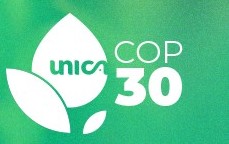
- This event has passed.
UNICA at COP30 – “Challenges to foster the SAF international market”

Promoting the production and use of Sustainable Aviation Fuels (SAF) is one of the most effective pathways to decarbonize aviation. SAF can reduce up to 80% of lifecycle CO₂ emissions compared to conventional jet fuel, depending on the feedstock and production pathway. Produced from renewable sources such as biomass, waste oils, and agricultural residues, SAF offers a technically viable alternative compatible with existing aircraft engines and airport infrastructure.
This panel will explore the barriers and pathways to building a robust international SAF market, emphasizing solutions that combine technological innovation, financial instruments, regulatory coherence, and international cooperation to make SAF a cornerstone of global aviation decarbonization.
Speakers
- Rodrigo Lima ( Agroicone)
- William Moore (FS)
- Pedro de la Fuente (IATA)
- Gabriel Ho (ASAFA)
Venue : COP30 – Blue Zone – Brazilian Sustainable Transportation Pavilion (PV-B26)
